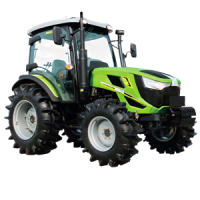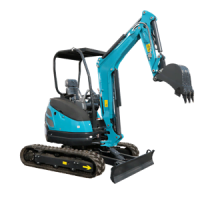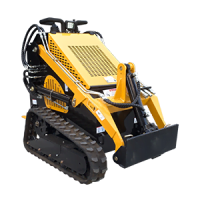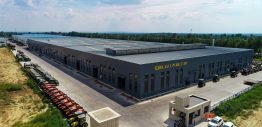In the ever-evolving landscape of agriculture, tractors remain the backbone of modern farming practices. These powerful machines have come a long way from their humble beginnings as steam-powered behemoths in the 19th century. Today, cutting-edge advancements in farm tractor technology are reshaping the agricultural sector, enhancing productivity, sustainability, and efficiency.
Introduction
Farm tractors have undergone a remarkable transformation over the years, evolving into high-tech marvels that leverage automation, data analytics, and precision engineering. This article delves deep into the latest innovations in farm tractor technology, shedding light on the exciting developments that are driving the agricultural industry forward.
The Evolution of Farm Tractors
Before diving into the latest advancements, it’s essential to understand the journey farm tractors have taken to reach their current state. Tractors have transitioned from rudimentary machines to sophisticated, multipurpose tools that cater to the diverse needs of modern agriculture.
Early Tractors – Steam and Gasoline-Powered Giants
In the late 19th and early 20th centuries, steam-powered and gasoline-fueled tractors dominated the agricultural scene. These behemoths were slow, cumbersome, and inefficient, requiring substantial manpower to operate.
The Diesel Revolution
The advent of diesel engines in the 1930s marked a turning point in tractor technology. Diesel tractors were more fuel-efficient, powerful, and versatile, allowing farmers to plow, harvest, and perform other tasks with greater ease.
Mechanization and Hydraulics
The mid-20th century saw the integration of hydraulic systems, enabling tractors to lift heavy implements and increase their functionality. This development laid the foundation for modern tractors, which can seamlessly handle various attachments.
Latest Advancements
With a firm understanding of the tractor’s evolution, let’s explore the cutting-edge advancements that are shaping the future of farming.
Autonomous Tractors
One of the most groundbreaking developments in farm tractor technology is autonomy. Autonomous tractors, equipped with GPS, sensors, and AI algorithms, can perform tasks with remarkable precision. They can navigate fields, plow, plant, and harvest crops without human intervention, optimizing both time and resources.
Electric and Hybrid Tractors
As sustainability becomes a primary concern, electric and hybrid tractors are gaining traction. Electric tractors produce zero emissions and are quieter than their diesel counterparts. Hybrid models combine the benefits of electric and traditional engines, offering versatility and reduced environmental impact.
Precision Farming and GPS Guidance
Precision farming techniques, powered by GPS technology, have revolutionized tractor operations. Tractors can now follow predetermined paths with centimeter-level accuracy, minimizing overlap and waste. This precision extends to planting, fertilizing, and pesticide application, leading to higher crop yields and cost savings.
Data-Driven Agriculture
Data analytics and IoT integration have become instrumental in modern tractor technology. Sensors on tractors collect data on soil quality, weather conditions, and crop health. Farmers can use this information to make informed decisions, optimize resource allocation, and maximize productivity.
Climate Control and Comfort
Comfort is no longer an afterthought in tractor design. The latest models offer climate-controlled cabins, ergonomic seating, and advanced suspension systems. This not only enhances the operator’s comfort but also reduces fatigue during long hours in the field.
Telematics and Remote Monitoring
Telematics systems allow farmers to remotely monitor their tractors’ performance and location. This real-time data can help with maintenance scheduling, theft prevention, and overall fleet management, improving efficiency and security.
Alternative Fuel Options
In response to environmental concerns, tractor manufacturers are exploring alternative fuel options. From hydrogen-powered tractors to those running on biofuels, these innovations aim to reduce the carbon footprint of agriculture.
FAQs
What are the benefits of autonomous tractors?
Autonomous tractors offer several benefits, including increased productivity, reduced labor costs, and improved precision in farming operations. They can work around the clock without operator fatigue, further enhancing efficiency.
How do data-driven tractors improve crop yields?
Data-driven tractors gather information on soil conditions, moisture levels, and crop health. This data enables farmers to make informed decisions about planting, irrigation, and fertilization, resulting in optimal crop yields.
Are electric tractors practical for all farming operations?
Electric tractors are well-suited for many farming tasks, especially those with shorter operating ranges. However, for large-scale operations that require extended periods of heavy-duty work, hybrid or diesel tractors may still be more practical.
What role does AI play in modern tractor technology?
AI is a crucial component of autonomous tractors and data analytics. It enables tractors to make real-time decisions about navigation, implement operation, and resource allocation, contributing to increased efficiency and productivity.
How do telematics systems benefit farmers?
Telematics systems provide farmers with real-time information about their tractor fleet, helping them track usage, monitor maintenance needs, and prevent theft. This data-driven approach to fleet management can lead to cost savings and improved security.
Conclusion
Farm tractor technology has come a long way since its inception, and the latest advancements are pushing the boundaries of what’s possible in agriculture. From autonomous machines to data-driven decision-making, these innovations are driving increased productivity, sustainability, and efficiency in farming operations. As technology continues to evolve, so too will the role of tractors in shaping the future of agriculture.







-1.png)